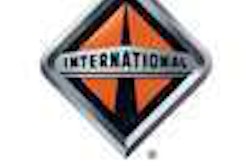Volvo Trucks North America and Mack Trucks announced Tuesday, Nov. 18, the launch of a large-scale program to remanufacture diesel particulate filters (DPF). The program will operate out of the Middletown Remanufacturing Center (MRC) in Middletown, Pa.
The truck makers say the program enables customers to simply exchange the used ceramic filter element from their DPF for a clean one when service is required, reducing service time and simplifying emissions control systems maintenance. Customers also are assured of receiving a warranted clean filter, while at the same time avoiding the need to invest in expensive filter cleaning systems, according to the companies.
The companies say the DPFs are remanufactured to more than 90 percent of original capacity: The process begins by blowing air across the filters and removing contaminants via a powerful vacuum; filter elements with a high level of oil or particulate buildup are baked in state-of-the-art industrial ovens to further reduce accumulated material prior to the vacuum process.
According to Bob MacPherson, MRC’s manager of lean systems and new engine projects, a key advantage of the program is the ability to remanufacture in bulk, instead of servicing one filter at a time. “A DPF filter element is reusable,” MacPherson says. “When it’s no longer doing its job optimally, the component is sent to us, and we return it to useful service. It’s a great deal for customers.”
It’s also a great deal for the environment, according to the truck makers. The U.S. Environmental Protection Agency’s 2007 emissions regulations required a dramatic reduction of particulate matter emissions by heavy-duty trucks. Trucks sold in 2007 with EPA ’07 engines now are approaching the mileage at which filters require routine service; if the filters are not remanufactured, the accumulation over time of ash and other material leads to decreased engine performance, the companies say.
The DPF cleaning process used by MRC, in addition to removing ash, also is able to detect cracked filter elements during the cleaning process, and the filter element is not subjected to high-pressure pulses that add additional stress, the truck makers say. “Our message to customers is that when they’re ready to change out their DPFs, we have a cost-effective solution to do that,” MacPherson says.








